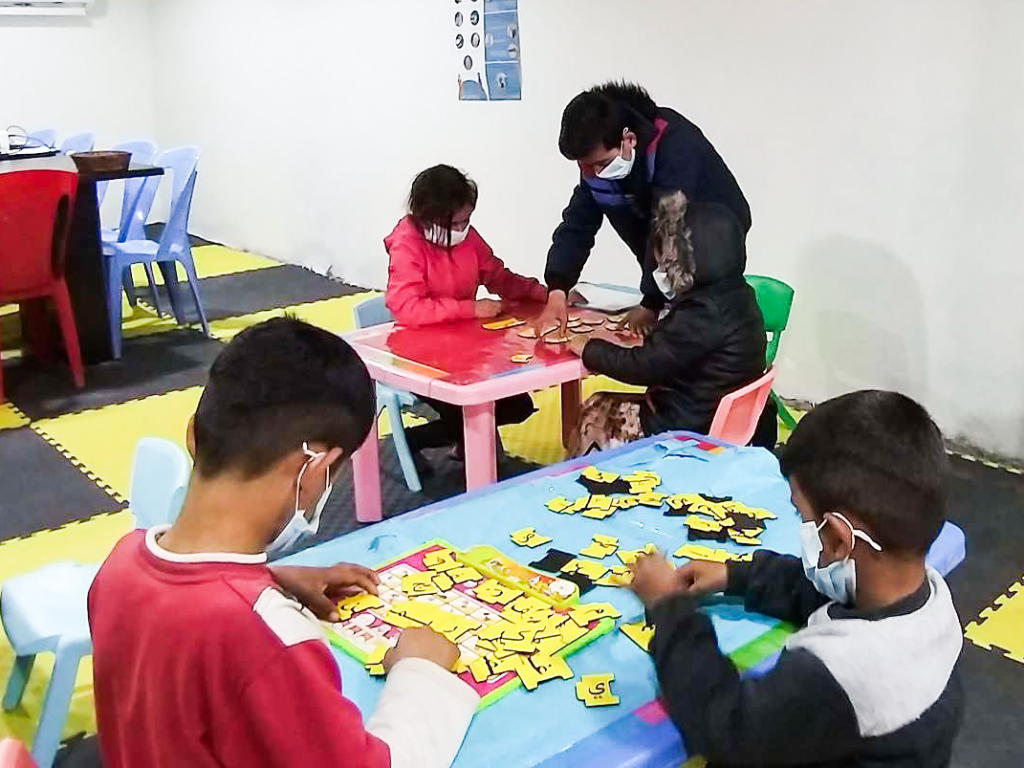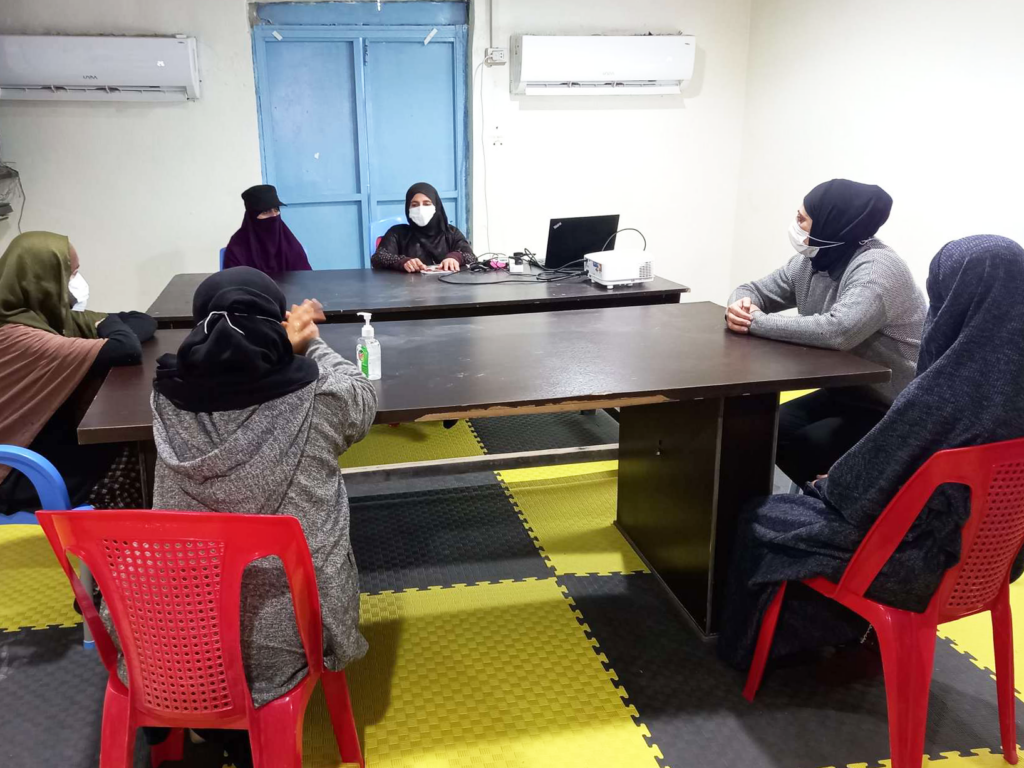Displacement is often an isolating experience, especially for those who have lost their friends and family members in the process. These difficulties can be eased when people are given the chance to share their experiences and create new community connections. At a displacement camp in northeast Syria, our teams are leading efforts through community cohesion sessions to help residents of all ages foster friendship, compassion, and a sense of belonging.
Like many children, Hamouda arrived at the camp with his family after fleeing their home amidst conflict. He participates in the children’s social cohesion sessions, where play, art, and games are used to help the camp’s young residents adjust. After sharing his experience of traveling to the camp, his feelings about the first day there, and memories of his home country, Hamouda found that he had a lot in common with others his age, so he began to open up.

Children at the displacement camp can play and make art at social cohesion sessions.
“I used to feel lonely when I came to the camp, but now I feel that I have friends that I love,” he said. “Now, I have an important role in helping the younger children and my friends.”
Hamouda encourages others to attend the sessions by sharing the activities and his experiences. His mother has noticed that the increased engagement has had a positive effect on Hamouda.
“I notice a behavior change and his will to help adults and young people, his social spirit, and his level of social awareness have increased,” she said.
Another camp resident, Al-Anoud, was overcome by grief after her mother and sisters passed away, leaving her to care for her young children alone. She withdrew from activities and rarely left her tent. She just lost hope.

Al-Anoud, center, found compassion from other women in the camp through their group meetings.
Al-Anoud’s friends and neighbors reached out to let her know she was not alone. After a group of women she met in a sewing group sent her a gift, she decided to return to the sessions.
Al-Anoud found sewing to be an intersection between her skills and the needs of other women in the camp. The community sessions gave her time to practice a valuable skill that also brought her joy. She now makes many hats, dresses, socks, and bags for her children and neighbors. With the support of her community and our team, Al-Anoud has developed hobbies that add purpose to her life and help her support her family.
“The most beautiful thing was to see the happiness and joy on the facilitators’ faces because of my success,” Al-Anoud said. “I am proud of myself now because I feel the more positive impact of the activities.”
Community sessions also provide camp residents an opportunity to lead and guide others. Bolstered by her cheerful spirit, humor, and wisdom, 61-year-old Um Jassem emerged as a community leader.
After her house was destroyed in an attack, Um Jassem arrived at the camp with her husband and children. Through her experiences and by recounting popular stories, she now helps to raise awareness about topics ranging from the importance of education to preventing gender-based violence.
She is especially passionate about the fair treatment of children and is known to advocate for disabled children and young girls. She shared with the community how she came to the camp and enrolled in literacy classes to educate herself and then encouraged her daughters to finish their education, emphasizing that children should not be treated differently because of their gender.
For children and adults, social cohesion activities help people build connections and play an important role in their community. The sense of place and belonging is especially critical for people who have already lost so much in displacement. Many who are coping with trauma are again finding meaning in life by helping others.



